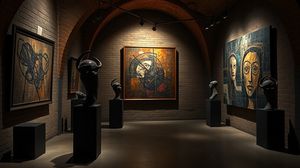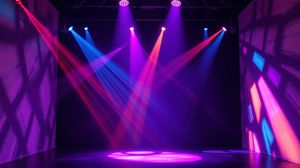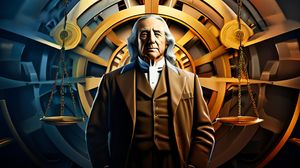
The Wiener Library in Russell Square is one of the world's leading archives dedicated to the Holocaust and genocide studies. Founded in 1933 by Dr. Alfred Wiener, it serves as a profound repository of evidence and research material that preserves the memory of these historical events. The library has become an essential resource for historians, scholars, and the general public alike.
This institution holds a unique collection of over one million items, ranging from books and photographs to personal documents and eyewitness accounts. These materials provide invaluable insights into the experiences and history of the Holocaust and other genocides, making it a cornerstone for those seeking to understand these complex and harrowing chapters of human history.
A fascinating feature of the Wiener Library is its Wiener Holocaust Library Testifying to the Truth Project, which houses a vast array of victim and survivor testimonies. These personal stories bear witness to individual experiences and contribute significantly to the historical record, helping to humanize the statistics associated with these events.
An intriguing aspect of the library is the International Tracing Service Digital Archive, which offers researchers and family members access to millions of documents related to the fates of victims of Nazi persecution. This resource is pivotal for those seeking to uncover family histories and understand the broader impacts of the Holocaust.
The Wiener Library's History of Science Collection is another interesting point of interest. It includes a selection of materials that explore the role of science and pseudoscience under the Nazi regime, reflecting on how scientific discourse was manipulated for ideological purposes, offering a sobering reminder of the power of science in societal contexts.

Making the Most of Your Visit:
Make the most of your visit by dedicating some time to explore the Testifying to the Truth Project. These testimonies offer deeply personal accounts that provide a richer understanding of historical events than traditional history texts often can.
Don't skip the exhibitions hosted in the library. They often feature unique themes and artifacts that provide context and depth to the library's core collections, offering new perspectives on familiar historical narratives.
If you have personal research interests, definitely delve into the International Tracing Service Digital Archive. It's not just for academics; family history enthusiasts find this a treasure trove for piecing together family histories related to WWII and the Holocaust.
The library hosts events and lectures regularly, which are fantastic if you want to engage more deeply with the subject matter. Check their calendar in advance and plan your visit around one of these sessions if you can.
Finally, consider timing your visit during weekdays if possible. It tends to be quieter, which gives you the advantage of exploring the library's vast resources with a bit more peace, making your visit more introspective and less hurried.

Visiting Times & Costs:
The Wiener Library, located in Russell Square, is open to the public and welcomes visitors who are interested in the study of the Holocaust and genocide. It offers access to its collections and resources throughout the year.
Opening Hours:
- Monday: 10:00 - 17:00
- Tuesday: 10:00 - 17:00
- Wednesday: 10:00 - 17:00
- Thursday: 10:00 - 17:00
- Friday: 10:00 - 17:00
- Saturday and Sunday: Closed
Admission: Free
The library offers free entry to all visitors. There may be occasional events or special exhibitions that require booking or may have a fee, so it's good to check their schedule in advance.
Accessibility:
The Wiener Library is committed to being accessible to all visitors. It has provisions for wheelchair access, and most of the library's resources and exhibitions can be comfortably accessed by individuals with mobility issues. If you have specific accessibility requirements, it is advisable to contact the library in advance to ensure your needs are met effectively.

Address & Map:

Nearby:























